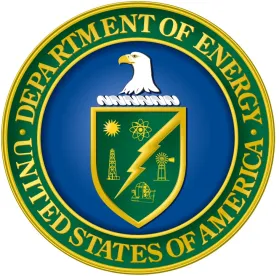On July 7, 2021, the U.S. Department of Energy (DOE or the Department) published a Notice of Intent to prepare an environmental impact statement (EIS) that will evaluate potential impacts arising from energy conservation standards for manufactured housing. According to the Department of Housing and Urban Development (HUD), manufactured housing includes transportable structures that are built on a permanent chassis and designed to be used as a dwelling when connected to the required utilities.1 This rulemaking has been pending for some time.
The Energy Independent and Security Act of 2007 (EISA) directed the DOE to set energy efficiency standards for manufactured housing by 2011. DOE initiated the rulemaking process in 2010.2 After significant delays, the Department decided to conduct a negotiated rulemaking in 2015 to better address the technical complexities of the rulemaking.3 DOE did issue a notice of proposed rulemaking in 2016; however, the draft final rule did not clear the Office of Information and Regulatory Affairs’ review process and was withdrawn on January 31, 2017.4 The current notice of intent represents a renewed effort to promulgate energy efficiency standards for manufactured housing. According to the notice, DOE plans to issue a supplemental notice of proposed rulemaking (SNOPR) on or before August 16, 2021.
The SNOPR is expected to propose standards relating to the building thermal envelope; air sealing; installation of insulation; duct sealing; heating, ventilation and air conditioning (HVAC); service hot water systems; mechanical ventilation fan efficacy; and heating and cooling equipment sizing of manufactured homes. The Department indicated that it is also considering an alternative, tiered approach that would factor in cost-effectiveness and affordability relative to the retail price of a manufactured home.
The draft EIS will analyze the potential environmental impacts of the proposed standards, including to indoor air quality and human health; outdoor emissions of air pollutants and greenhouse gases; energy consumption; socioeconomics; environmental justice; and climate change. The Department invites stakeholders to comment on the EIS during its scoping period, which runs until August 6, 2021. DOE will also host two virtual scoping meetings for the public on July 21 (5:00-7:00 pm EDT) and July 22 (2:00-4:00 pm EDT). These meetings will provide a forum for stakeholders to share comments on the scope of the EIS and ask questions of DOE representatives. Details on how to submit scoping comments and to participate in the public scoping meetings will be provided on the EIS website. Otherwise, DOE is accepting written comments on the scope of the EIS until August 6, 2021.
1 24 C.F.R. § 3280.2. A Prior DOE proposal sought to adopt the HUD definition. See Energy Conservation Standards for Manufactured Housing, 81 Fed. Reg. 39,755 (June 17, 2016).
2 Energy Efficiency Standards for Manufactured Housing, 75 Fed. Reg. 7,556 (Feb. 22, 2010).
3 Appliance Standards and Rulemaking Federal Advisory Committee: Notice of Intent To Establish the Manufactured Housing Working Group To Negotiate a Notice of Proposed Rulemaking (NOPR) for Energy Efficiency Standards for Manufactured Housing, 79 Fed. Reg. 33,873 (June 13, 2014).
4 See Energy Conservation Program: Energy Conservation Standards for Manufactured Housing, 83 Fed. Reg. 38,073, 38,074-5 (Aug. 3, 2018).





 />i
/>i

